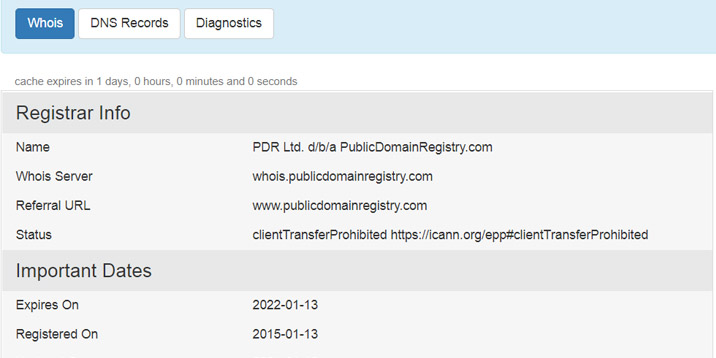“How much does website hosting cost?” is a frequent question of all website developers’ clients. The most common answers start with “it depends,” and this generates developer-client friction. The purpose of this article is to give you a strategic overview of website hosting costs. Also, it aims to educate clients about the complex matter of finding the proper hosting platform.
Clients underestimate hosting because it doesn’t directly impact a website. The theme is responsible for the site design, while the plugins bring more features. Any theme or plugin customization impacts your site while changing the host is “under the hood.” Read this article, and you will better understand the role and the price of hosting.
The Role of Hosting
In plain English, the host platform stores your site files. It doesn’t make sense to keep them on your computer and make the site accessible to everyone. Bear in mind that it’s possible to do that, but it’s totally unproductive. Your online business relies on the hosting platform, so you can’t afford to play with your reputation; that’s is a solid reason to pay close attention to your host.
You want your site to be permanently available. The host is responsible for your site’s availability. Look for hosting platforms with the maximum uptime. Security is another area where the host plays a critical role. Check how each host platform treats security before purchasing a subscription.
Speed is becoming more and more important. Your site should load quickly if you care about your business and clients’ ease of use. It’s not always simple to speed up site loading, and the host quality matters a lot. You may save some money by choosing a host with lower performance but waste more money by frustrating your clients.
Website Hosting Cost Breakdown
A hosting platform is a business, and its main goal is to obtain profit. A percentage of hosting costs go to the host company’s profit. A more significant percentage of the website hosting cost covers the following expenses:
- Infrastructure. A hosting platform must use the latest network infrastructure to keep up with competitors. Computers, routers, firewalls, switches, coolers, and many other components cost a fortune to provide high-quality services.
- Operational costs. The same as many other businesses, a host platform has operational costs. The rent and electricity are the more expensive costs in most instances. Servers need special spaces to satisfy the hardware requirements so that rent can be expensive.
- Wages. The salaries of the network engineers are fairly high, and they are in high demand. The manager of a hosting platform must financially motivate these qualified employees. While the average wages of support agents are lower, these also impact the host’s business profitability.
Types of Website Hosting
Even though it sums up to keeping the site files, there are different types of hosting. These are the most common alternatives.
Shared Hosting
Its name is self-explanatory – a server stores the site’s files together with other sites’ files. It’s the cheapest type of hosting, and it’s the favorite choice of most people. The affordable price tag comes with two major cons. First, sharing the same resources with other sites means that any traffic spike of a site on the server impacts your site’s resources. It results in a slower loading speed, and sometimes it may put down your site. Second, a compromised website represents a huge security breach for all the sites from that shared server. A hacker who breaks into the server hosting your site is a potential problem that keeps you up at night for sure!
Pricing: Shared hosting is the most affordable alternative to host your site. It’s the working choice for starter sites. The price varies from $1-2/month to $10-15/month, depending on the services included in each pricing plan. We did many excellent hosting reviews, and you should check them before buying site hosting.
VPS Hosting
VPS (Virtual Private Server) is similar to shared hosting, but it comes with improved performance and security. While shared plans are built to keep tons of websites on the same server, VPS hosting stores fewer websites. Besides that, the server is split up into virtual servers dedicated to each site. Briefly, you share the same server with other sites, but you don’t share the resources.
Pricing: The prices vary extensively. The cheapest plans start at $9-10/month, and the most expensive is $55-60/month. The host pricing is differentiated by the services included. For instance, some plans include free setup and SSL certificate but have a higher pricing tag. Other hosting plans don’t include these but are cheaper.
Dedicated Hosting

Forget about sharing a server with other sites! Dedicated hosting is practically renting a server for your site. It eliminates all the issues generated by the co-existence of multiple sites on the same server. Your site performance and security are in your hands. It looks like the perfect type of hosting, and to some extent, it really is. Yet, it has a capital downside – the price! Dedicated hosting suits sites with a large number of visitors. Usually, these generate enough revenue to pay off the expensive dedicated plans.
Managing a server storing your online business requires some technical knowledge. That’s why dedicated hosting comes in two versions: managed and unmanaged. Managed hosting includes server management from the platform’s side. Unmanaged hosting gives you the entire responsibility of the server and site management.
Pricing: A reasonable pricing estimation is almost impossible. Dedicated hosting includes many services, and you have plenty of tailored options for your site.
Cloud Hosting
Did you hear that the future of hosting is in the clouds? Nowadays, cloud hosting isn’t widely used by webmasters, but the rate of getting on the cloud bandwagon is impressive. Sooner or later, cloud hosting will be the norm and not the exception.
Cloud hosting is scalable, stable, performant, and secure. The resources for the sites hosted in the clouds are automatically allocated. The surges in traffic won’t put down your site – the cloud platform scale up and down the resources automatically. In this way, you only pay for what the site consumes.
The cloud platform ensures perfect uptime and enhanced security. Certainly, cloud hosting captivated the attention of webmasters. However, it has two serious cons: the price and the technical knowledge required.
Pricing: The cloud hosting platforms have a pricing calculator to estimate the hosting bills. The prices range according to the CPU usage, storage needed, and other factors. You are free to change the host settings, so your monthly bills may vary even though you use the same cloud platform.
Hidden Costs
The pricing plans for hosting are presented on each platform, so everyone may consult them. It’s not fair at all, but sometimes hosts hide essential details that raise the price of the final bill. An educated purchase takes into account the following factors.
Renewal Pricing Strategy
Bear in mind that the impressively low prices featured on each hosting platform site are the promotional prices. The discounts are high, and once the first contract ends, users are blown away by the renewal prices. Siteground is one of the best hostings for WordPress sites, but it uses a trick to attract more customers. The promotional price of the is GoGeek plan $13.99/month, and the regular price is $34.99/month. It’s a huge difference between them. Certainly, some customers didn’t notice the regular price and believed the promo price would be the same as the renewal.
Every time you buy hosting services pay close attention to the renewal price. Don’t be fooled by the promo prices. If possible, buy hosting for two or three years. In this way, you benefit from the promo prices for a longer period of time.
Email Hosting
True story: I am the lucky winner of a prize consisting of a one-year hosting subscription. The hosting platform provides quality services, but it fell short of an important aspect – email hosting. Users (me included) can’t host their custom emails on the hosting servers, which isn’t very pleasant. It’s convenient to have site files and emails on the same platform.
While I didn’t pay anything for the prize, others might pay for hosting and expected custom email hosting included in the price.
Periodic Backup Copies
It’s the duty of a webmaster to create periodic backup copies of their sites. Hosting platforms want to make sure that the clients won’t lose their sites and back them up. Some hosting provides these services for free, but others ask for a small monthly fee. A backup plugin combined with backup copies from the hosting platform gives you that needed peace of mind to focus on scaling up your business. Keep in mind that this service adds to the shopping cart!
SSL Certificate

You don’t want to run a website without an SSL certificate. People won’t trust and buy from you unless your site displays the green padlock icon in the browser bar. Most hosting providers entice the leads with a free SSL certificate. Be careful as some hosts don’t offer free SSL certificates, so you must pay for them.
Security Improvement
Perhaps you don’t care too much about the security of a blog you post from time to time. Running an online business and dealing with personal data dramatically changes this situation. Website security became a top concern, and you are inclined to pay more for enhanced security. Hosting platforms implement a wealth of proactive measures, and these are enough in most instances.
The price of the hosting will grow when you choose a superior security plan. It’s up to you to decide if you need that extra layer of security.
Setup Fee
The setup fee is another factor that increases the hosting price. You don’t have the time or the knowledge needed to create or migrate a site. Hiring an expert from the hosting site to create or migrate a site is opportune, but it adds to the final website hosting cost. Notice that the setup fee is zero for a few hosting platforms.
Domain Privacy

Do you want to keep your personal data private? For whatever reason, you want to hide your data from people who search for it. However, it is a requirement from ICANN regulations that details about the site owner are visible. Many hosting platforms offer domain privacy services – you pay, and the host hides your details. Of course, everything is legal, and ICANN doesn’t penalize your site. The cost of the domain privacy adds up to your hosting bill.
Domain Name Registration
The hosting platforms are pretty fair about the domain name registration, but sometimes the users aren’t fully aware of this process. The domain name is, in fact, the name of your site, and you have to pay a subscription fee to use it. Some hosts pay the domain name fee for you, but it includes conditions like:
- subscribe to a superior pricing plan;
- buy a two-year plan;
- free for the first year and you have to pay after this period.
Conclusions
Carefully read the offering of a hosting platform before opening your wallet. In most instances, hosts highlight only the advantages. Despite that, you are 100% responsible for your decision, so go through each point of the pricing plan to know exactly what you are buying. Ask the support if you are unsure about a feature, and don’t rush into a decision.

Leave a Reply